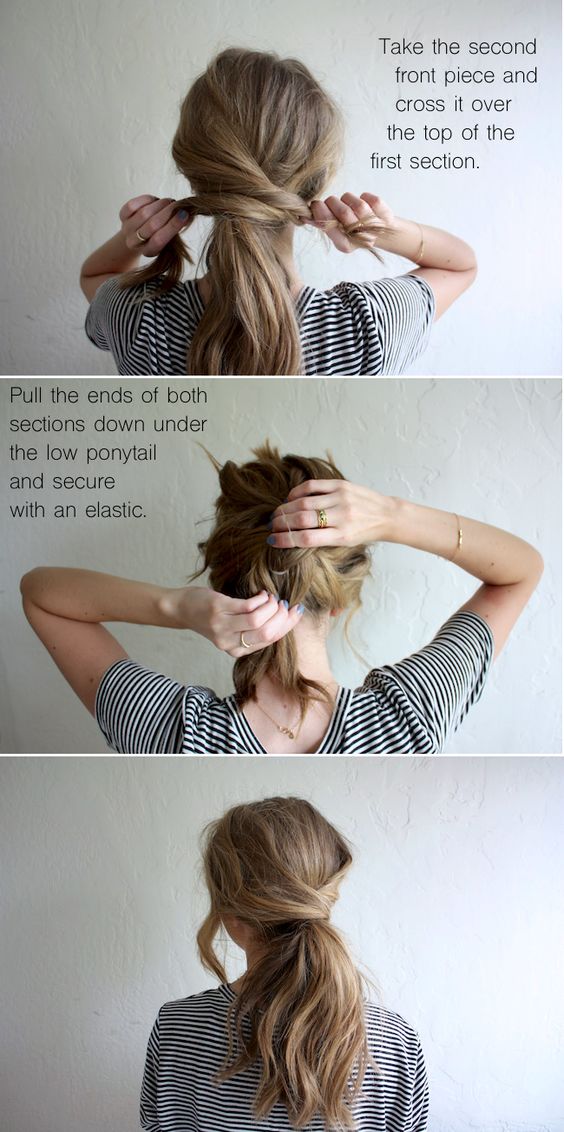Your doctor is the best person to inform you about how much hair loss you can expect. This varies person to person.
Does All Your Body Hair Fall Out With Chemo, So, let’s take it from the top. Hair loss does not occur with all chemotherapy.

Hair loss may occur as early as the second or third week after the first cycle of chemotherapy, although it may not happen until after the second cycle of chemotherapy. How quickly does hair fall out with chemo? Hair loss may occur as early as the second or third week after the first cycle of chemotherapy, although it may not happen until after the second cycle of chemotherapy. Certain chemotherapy medicines used to treat breast cancer can cause the hair on your head to become thin or to fall out completely.
Although cancer does make your hair fall out (because you�re just generally ill) it�s actually the chemotherapy that makes it fall out.
Whether or not someone loses their hair during chemotherapy depends largely upon several factors, not least of which is the type and dosage of chemotherapy drugs used. When does hair fall out during chemo? Why does hair fall out during chemotherapy?: Chemotherapy may cause hair loss from all over the body, not just the scalp. Your scalp may feel tender. Although cancer does make your hair fall out (because you�re just generally ill) it�s actually the chemotherapy that makes it fall out.
 Source: articlesall.com
Source: articlesall.com
All chemo drugs don’t cause hair loss, also called alopecia. Hair loss background when does hair fall out after chemo and how long does it take to grow back? Often people may find they start losing their hair in. How long after chemo does your hair fall out? Losing your hair to chemo?
 Source: youtube.com
Source: youtube.com
You’ll likely notice accumulations of loose hair on your pillow, in your hairbrush or comb, or in your sink or shower drain. Is it an easy road? Hair loss may occur as early as the second or third week after the first cycle of chemotherapy, although it may not happen until after the second cycle of chemotherapy. Facial hair, arm.
 Source: dailymail.co.uk
Source: dailymail.co.uk
Changes to your eyebrows, eyelashes and body hair. Whether or not your hair remains as it is, thins or falls out, depends on the drugs and dosages. The majority of hair loss from chemotherapy is temporary. Radiation therapy also can cause hair loss. This can be a shock, especially if you’re not prepared for it.
 Source: mycancerchic.com
Source: mycancerchic.com
Whether or not someone loses their hair during chemotherapy depends largely upon several factors, not least of which is the type and dosage of chemotherapy drugs used. Hair loss may occur as early as the second or third week after the first cycle of chemotherapy, although it may not happen until after the second cycle of chemotherapy. If you’re not.
 Source: youtube.com
Source: youtube.com
How quickly does hair fall out with chemo? This is almost always temporary. Within a few weeks of starting certain chemotherapy medicines, you may lose some or all of your hair. All chemo drugs don’t cause hair loss, also called alopecia. Often people may find they start losing their hair in.
 Source: epainassist.com
Source: epainassist.com
Your scalp may feel tender. The doctor tells you that you’re going to lose your hair. Chemotherapy may cause hair loss all over your body — not just on your scalp. But you’ll have an opportunity to try just about every hairstyle imaginable, so you might as well embrace it and make the best of each stage. Hair loss may.
 Source: lacunaloft.org
Source: lacunaloft.org
All chemo drugs don’t cause hair loss, also called alopecia. The majority of hair loss from chemotherapy is temporary. It could fall out very quickly in clumps or gradually. This is almost always temporary. Does pubic hair fall out during chemo?
 Source: pinterest.com
Source: pinterest.com
Whether or not your hair remains as it is, thins or falls out, depends on the drugs and dosages. However, some of these drugs do not cause any hair loss at all or only thin the hair a little bit. Is it an easy road? Some chemotherapy drugs make other body hair fall out. Why does hair fall out during.
 Source: youtube.com
Source: youtube.com
Certain chemotherapy medicines used to treat breast cancer can cause the hair on your head to become thin or to fall out completely. Hair loss may occur as early as the second or third week after the first cycle of chemotherapy, although it may not happen until after the second cycle of chemotherapy. Its cooling effect reduces blood flow to.
 Source: youtube.com
Source: youtube.com
Hair usually begins falling out two to four weeks after you start treatment. James darell / getty images certain chemotherapy medications, such as those belonging to the taxane group, are known to cause hair loss (alopecia) while others may not affect hair follicles all that much. We have some practical tips to help you cope with this hair loss. It.
 Source: youtube.com
Source: youtube.com
Radiation therapy also attacks quickly growing cells in your body, but unlike chemotherapy, it affects only the specific area where treatment is concentrated. Unfortunately, these drugs also attack other rapidly growing cells in your body, including those at the roots of your hair. Generally speaking, hair loss caused by chemotherapy happens around two to four weeks after the start of.
 Source: parhlo.com
Source: parhlo.com
Your doctor is the best person to inform you about how much hair loss you can expect. Often people may find they start losing their hair in. How quickly does hair fall out with chemo? Within a few weeks of starting certain chemotherapy medicines, you may lose some or all of your hair. Hair loss does not occur with all.
 Source: drjockers.com
Source: drjockers.com
Although cancer does make your hair fall out (because you�re just generally ill) it�s actually the chemotherapy that makes it fall out. Why does hair fall out during chemotherapy?: This can be a shock, especially if you’re not prepared for it. Your doctor is the best person to inform you about how much hair loss you can expect. Hair loss.
 Source: wheatridgecodentist.com
Source: wheatridgecodentist.com
Hair loss may occur as early as the second or third week after the first cycle of chemotherapy, although it may not happen until after the second cycle of chemotherapy. This is almost always temporary. So, let’s take it from the top. We have some practical tips to help you cope with this hair loss. If you have radiation to.
 Source: pinterest.com
Source: pinterest.com
Hair loss is a sign the drugs are doing their job. Some chemotherapy medicines can also cause hair loss on other parts of your body, such as your eyebrows and eyelashes, pubic hair, and hair on your legs, arms, or underarms. Hair usually begins falling out two to four weeks after you start treatment. We have some practical tips to.
 Source: youtube.com
Source: youtube.com
Talk to your doctor about what you can expect. Hair loss does not occur with all chemotherapy. But you’ll have an opportunity to try just about every hairstyle imaginable, so you might as well embrace it and make the best of each stage. Unfortunately, these drugs also attack other rapidly growing cells in your body, including those at the roots.
 Source: seedot.newrelease.does-it.net
Source: seedot.newrelease.does-it.net
Although cancer does make your hair fall out (because you�re just generally ill) it�s actually the chemotherapy that makes it fall out. The hair loss can happen gradually or fairly quickly. Chemotherapy may cause hair loss from all over the body, not just the scalp. Hair loss background when does hair fall out after chemo and how long does it.
 Source: en.wikipedia.org
Source: en.wikipedia.org
Hair loss during chemotherapy and radiation is very confronting; Chemotherapy may cause hair loss from all over the body, not just the scalp. All chemo drugs don’t cause hair loss, also called alopecia. Your scalp may feel tender. Your doctor is the best person to inform you about how much hair loss you can expect.
 Source: tekdeeps.com
Source: tekdeeps.com
James darell / getty images certain chemotherapy medications, such as those belonging to the taxane group, are known to cause hair loss (alopecia) while others may not affect hair follicles all that much. Hair loss during chemotherapy and radiation is very confronting; Hair usually begins falling out two to four weeks after you start treatment. Facial hair, arm and leg.
 Source: birthonlaborday.com
Source: birthonlaborday.com
Your doctor is the best person to inform you about how much hair loss you can expect. Whether or not your hair remains as it is, thins or falls out, depends on the drugs and dosages. Talk to your doctor about what you can expect. Radiation therapy also can cause hair loss. Why does hair fall out during chemotherapy?:
 Source: youtube.com
Source: youtube.com
Some chemo treatments do not make people’s hair fall out but it does become thinner or duller. Often people may find they start losing their hair in. Sometimes your eyelash, eyebrow, armpit, pubic and other body hair also falls out. Your scalp may feel tender. But you’ll have an opportunity to try just about every hairstyle imaginable, so you might.
 Source: reddit.com
Source: reddit.com
Your doctor is the best person to inform you about how much hair loss you can expect. Hair usually begins falling out two to four weeks after you start treatment. It could fall out very quickly in clumps or gradually. Certain chemotherapy medicines used to treat breast cancer can cause the hair on your head to become thin or to.
 Source: emedicinehealth.com
Source: emedicinehealth.com
A cold cap is a hat that is worn during some chemotherapy treatments. Your scalp may feel tender. If you have radiation to your head, you’ll likely lose. Facial hair, arm and leg hair, underarm hair, and pubic hair all may be affected. Some chemo treatments do not make people’s hair fall out but it does become thinner or duller.
 Source: youtube.com
Source: youtube.com
This can include eyebrows, eyelashes, nose hair, beards, moustaches, chest hair, and leg, arm, underarm and pubic hair. Although cancer does make your hair fall out (because you�re just generally ill) it�s actually the chemotherapy that makes it fall out. Sometimes your eyelash, eyebrow, armpit, pubic and other body hair also falls. As the can’t distinguish different types of growing.
 Source: youtube.com
Source: youtube.com
Your doctor is the best person to inform you about how much hair loss you can expect. Whether or not your hair remains as it is, thins or falls out, depends on the drugs and dosages. How long after chemo does your hair fall out? Generally speaking, hair loss caused by chemotherapy happens around two to four weeks after the.










